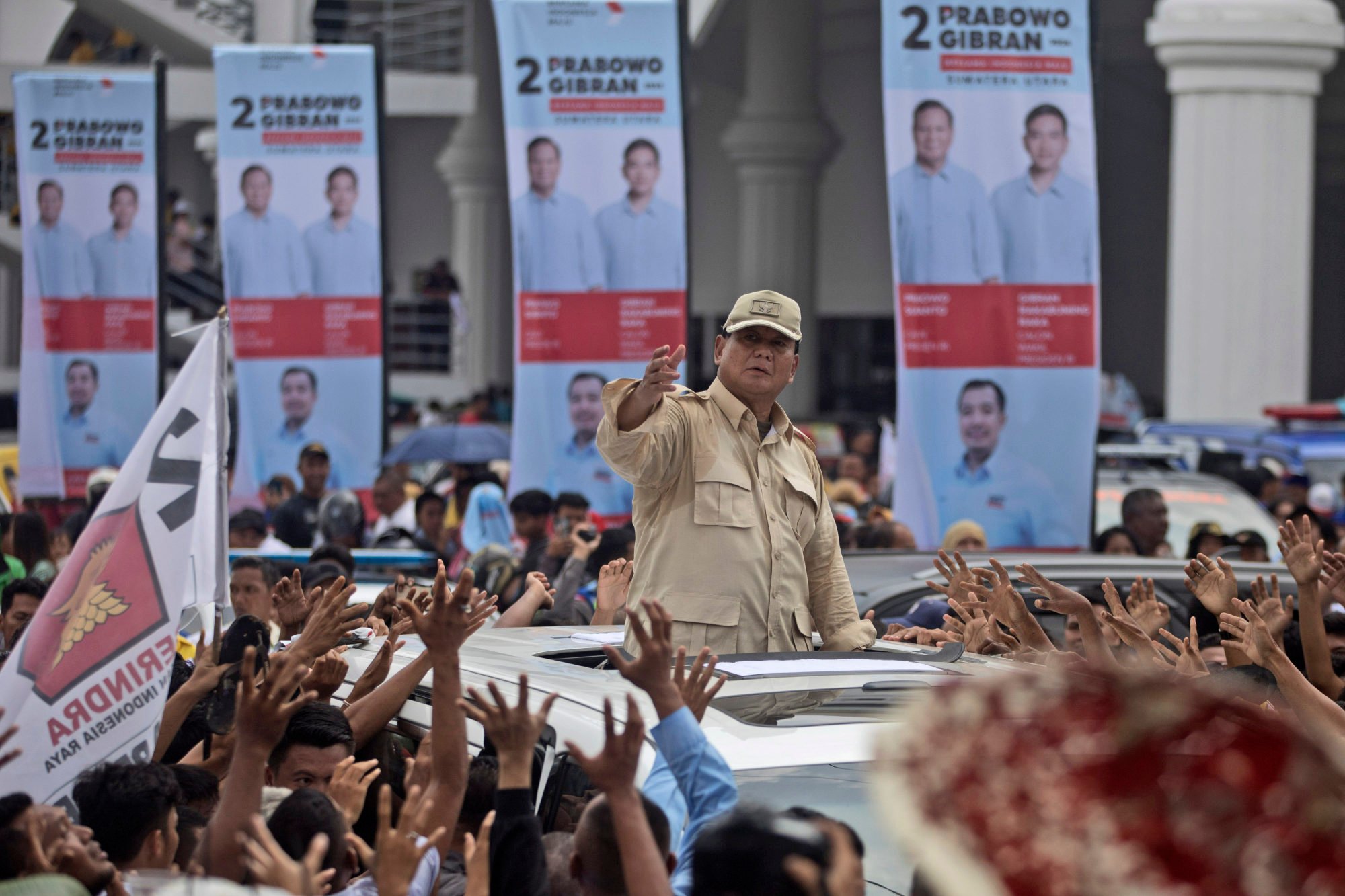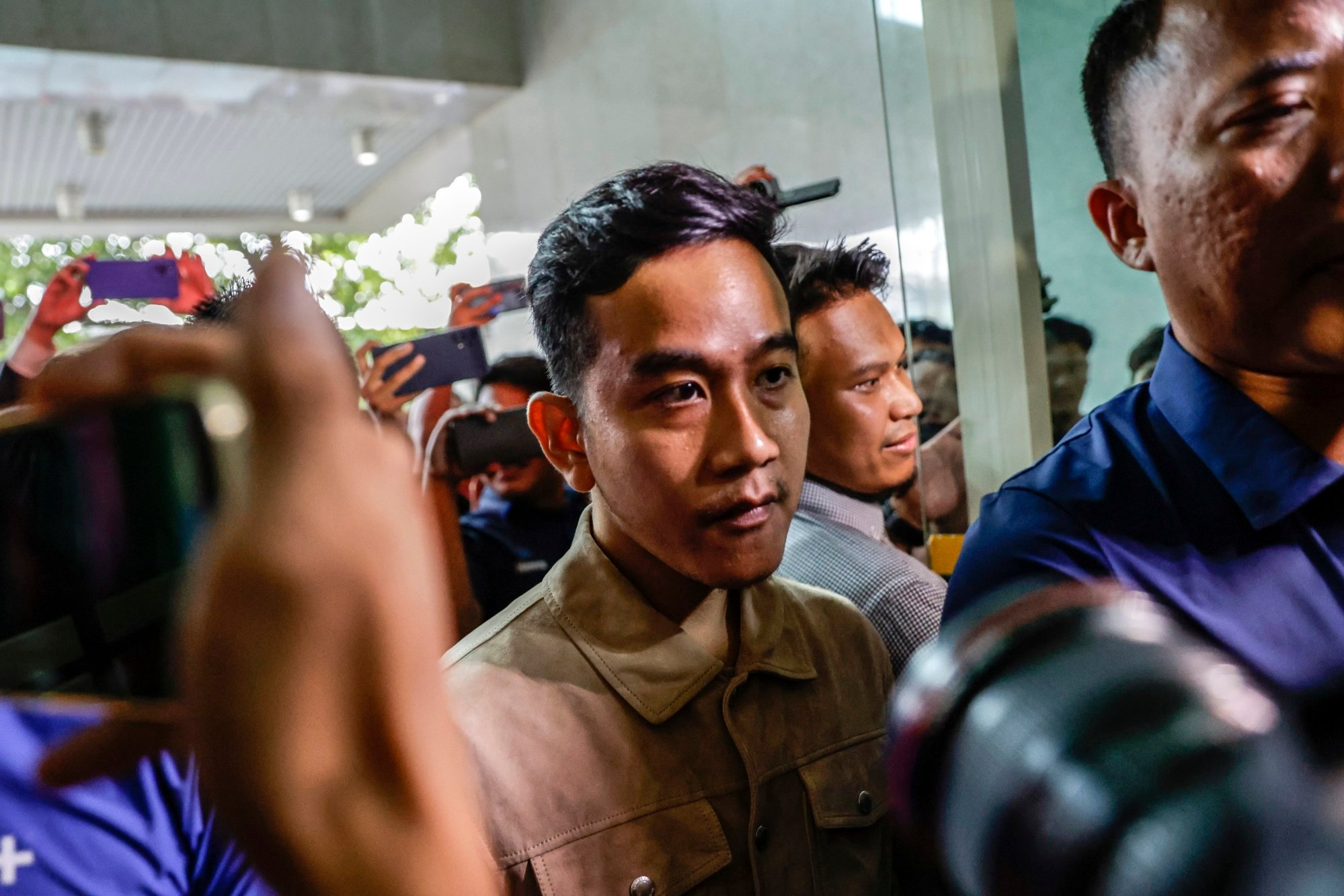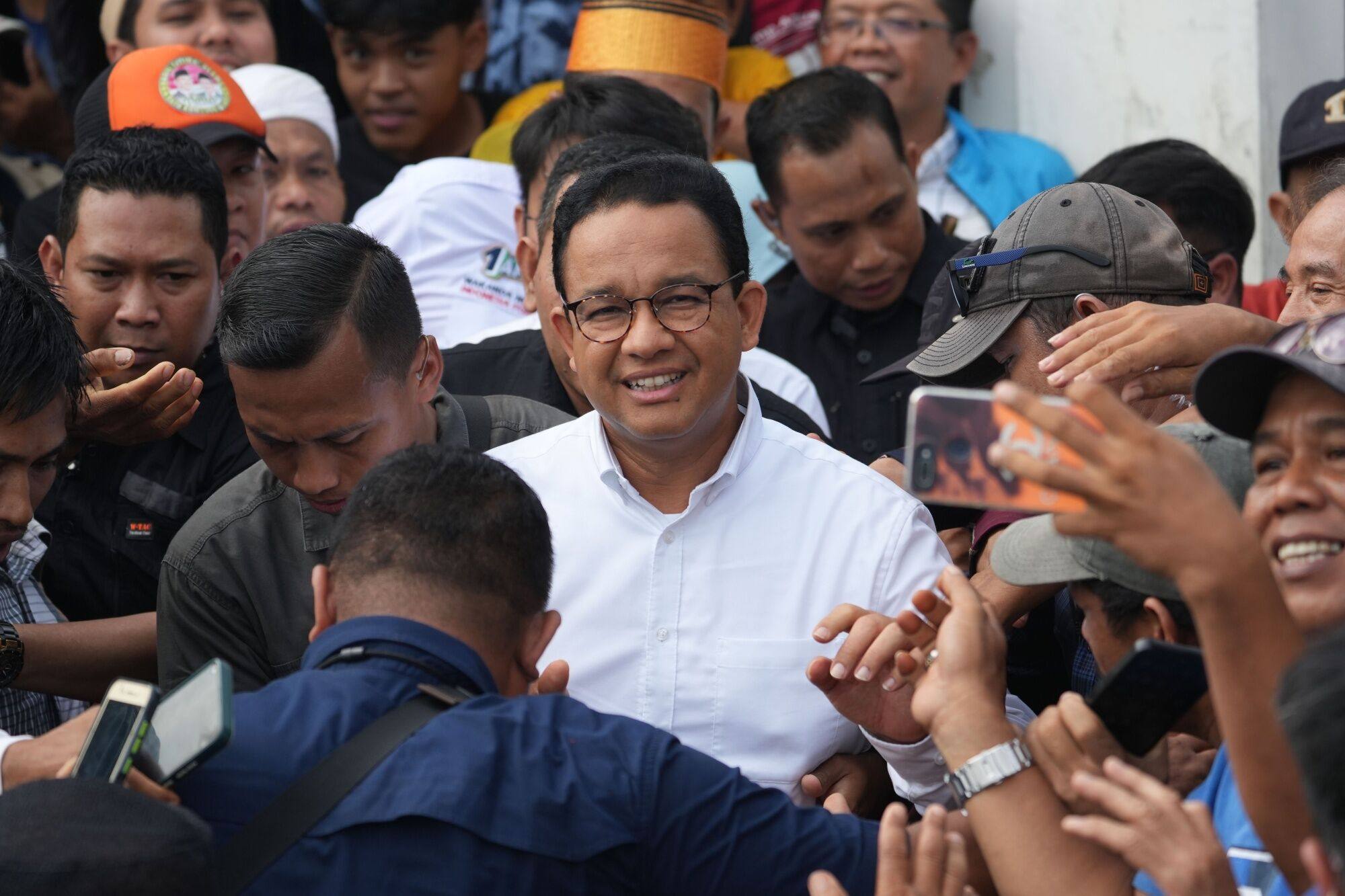Indonesia election 2024: is Jokowi’s ‘partiality’ for Prabowo a double-edged sword for the presidential hopeful?
[ad_1]
“[The] process of democratisation has recently been distorted; the coming elections have shown increasingly worrying symptoms,” the group said in a statement published in The Jakarta Post newspaper. “The slogan of ‘a fair and honest election’ is not enough, because the elections must also take place peacefully and with dignity.”
‘Power does not last’, Indonesia’s ex-leader Megawati says in jab at Jokowi
‘Power does not last’, Indonesia’s ex-leader Megawati says in jab at Jokowi
Questions surrounding Widodo’s neutrality, or lack thereof, were again reignited after photos circulated online of the president hosting Prabowo, who is also the country’s defence minister, for a private dinner earlier this month.
A report by local news outlet Tempo, citing unnamed politicians familiar with the goings-on of the meeting, said Widodo was looking to shore up support for the Prabowo-Gibran ticket following concerns the pair might not be able to secure an outright poll victory.
To avoid a run-off, the duo will have to garner at least 50 per cent of the vote on February 14. Failing that, there will be a second round run-off vote between the first- and second-place finishers on June 26.
The latest opinion poll released by Indikator Politik on Thursday showed Prabowo had the confidence of 45.8 per cent of voters, with opposition candidate Anies Baswedan garnering 25.5 per cent. Ganjar Pranowo, the nominee for the ruling Indonesian Democratic Party of Struggle (PDI-P), came in third with 23 per cent.
“[Prabowo’s] popularity has been stuck at around 45-46 per cent, suggesting that the Prabowo-Gibran ticket may have reached its peak,” said Dedi Dinarto, lead Indonesia analyst at public policy advisory firm Global Counsel.
“Any political missteps by Jokowi perceived by civil society groups to be detrimental to democracy could hinder Prabowo and Gibran’s efforts to further boost their popularity,” he added, referring to Widodo by his nickname.

Prabowo’s popularity in the polls surged when he tapped Gibran to join his ticket. However, critics and activists also accused Widodo of leveraging his position and influence to secure Gibran’s nomination.
This decision sparked widespread criticism, with critics accusing Widodo of seeking to start a political dynasty, and of abusing his power to elevate his son’s political fortunes.
Widodo, a former furniture salesman, rose from his humble beginnings to become the mayor of Surakarta and then Jakarta’s governor, before winning the presidency, all with the backing of the PDI-P.
But according to Dedi, Widodo did not support his party’s candidate, Ganjar, because he believes the PDI-P “is not the ideal platform for achieving his political ambitions”.
“Jokowi’s partiality towards Prabowo represents a strategic move to ensure his political survival post-presidency,” he said.
“Considering the damage that he has inflicted on Indonesian democracy, securing a victory for Prabowo-Gibran seems to be the only path to guarantee the political survival of both him and his family,” he added.

Common enemy
Widodo remains highly popular among the electorate after nearly 10 years in power, with a December poll by the Indonesian Survey Institute showing him with a 76 per cent approval rating. Analysts say his beloved status means most members of the public will not be turned off by his political manoeuvring in this election.
Only a “small group of Jokowi voters” will vote for Anies or Ganjar, according to Alexander R. Arifianto, a senior fellow with the S. Rajaratnam School of International Studies’ Indonesia programme.
According to Arifianto, those voters are less likely to be concerned about Widodo’s alleged dynasty-building, and more so with Prabowo’s human rights record from his time as a military officer under dictator Suharto in the 1990s, as well as his perceived “erratic and temperamental behaviour”, which was more apparent during his previous campaigns against Widodo for the presidency in 2014 and 2019.
“Nonetheless, this is only a relatively small number of people, mainly on the liberal or progressive end of the ideological spectrum; less than 1 per cent of Indonesians,” he said.
“Their electoral impact is smaller than the impact of Jokowi supporters, who are now backing Prabowo in droves thanks to Gibran’s appointment and the president’s tacit support,” he added.
Will Indonesia’s Anies and Ganjar team up to deny Prabowo an outright poll win?
Will Indonesia’s Anies and Ganjar team up to deny Prabowo an outright poll win?
However, Widodo’s support for Prabowo’s campaign may also be a double-edged sword, in that it could bring his two electoral rivals together.
There have been a number of recent reports that officials backing Ganjar and Anies have been meeting to discuss an alliance to dilute Prabowo’s votes and force a run-off election, according to Bloomberg.
This would make for an odd ideological pairing, say analysts. Ganjar is from the PDI-P, a secular party, whereas Anies’ Coalition of Change for Unity includes the Islamist, conservative Prosperous Justice Party (PKS).
“PDI-P leader Megawati Soekarnoputri has said in the past that it was a ‘red line’ for her party to develop an alliance with PKS, given the latter’s desire to turn Indonesian politics and society in a more Islamic direction, while the PDI-P has long been committed to the nationalist principles enshrined in the Indonesian constitution,” said Arifianto.

The ideological mismatch of such an alliance could alienate certain voter groups, so the make-up of the deal and how it’s presented to voters would be important, he added.
In an interview with Bloomberg on Tuesday, Anies refused to elaborate on the potential of a pairing, saying his focus remained on getting as much support as possible before election day.
Ganjar has been more forthcoming about the idea, telling reporters last week that “everything is possible”, when asked about the rumours surrounding the potential coalition between the two camps.
While the presidential candidates are playing their cards close to their chest, their supporters at the grass-roots level are already showing signs of collaboration, including exchanging information and sharing campaigning strategies, according to analysts.
However, it is uncertain whether such a coalition would have a real impact on the polls.
“Jokowi has done more than any previous post-Reformasi Indonesian president to play an active role in hand-picking his successor and making his preferred candidate clear to the public,” Arifianto said. “His actions might set a new precedent for future Indonesian presidents to follow. Whether it is good or bad for Indonesia’s democracy remains to be seen.”
[ad_2]
Source link

